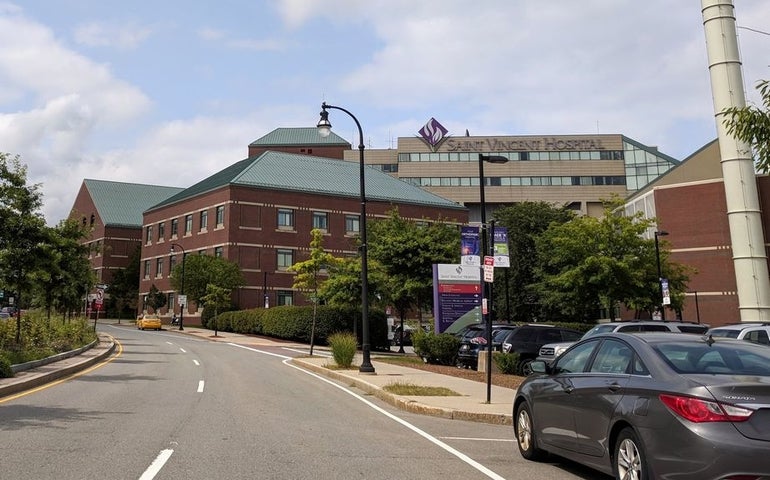Central Massachusetts hospitals make up four of the top 10 statewide for the highest rates of emergency room visits attributable to opioids, according to new Massachusetts Health Policy Commission data.
More than 2% of emergency department discharges were opioid-related for the years 2016 and 2017 the commission studied at Saint Vincent Hospital in Worcester, UMass Memorial Medical Center’s Memorial and University campuses in Worcester, and HealthAlliance-Clinton Hospital’s Leominster campus.
Those results give Central Massachusetts an unfortunate distinction as the opioid crisis continues to kill around 2,000 people each year in Massachusetts. Other hospitals seeing the highest rates of opioid-related emergency room visits were Boston Medical Center, North Shore Medical Center Union Hospital in Lynn, and Merrimack Valley Hospital in Haverhill. Others are located in Lowell, Brockton, Springfield and Fall River.
MetroWest Medical Center – Leonard Morse Hospital in Natick landed third statewide for the highest percent of opiod-related inpatient discharges, at more than 10%. Saint Vincent Hospital and UMass Memorial’s University Campus were also in the top 15 statewide at more than 5%.
Opioid-related hospital visits fell from 2016 to 2017 by 2.3% after consecutive years of double-digit year-to-year increases, showing the opioid epidemic may be leveling off. Opioid deaths declined slightly statewide last year, with an estimated drop of 4% in 2018 from a peak two years prior.
But a few Central Massachusetts cities bucked that trend by showing rising death numbers, including Worcester, where fatalities rose from 80 to 97 last year. Marlborough rose from five to 14, Framingham from eight to 19, and Gardner from eight to 11.
The latest report by the Health Policy Commission shows some promising trends in smaller Massachusetts communities. Decreases of 20% or more in opioid-related emergency discharges were shown between 2016 and 2017 in primary care service areas covering Auburn, Dudley, Harvard, Holden, Littleton, Oxford, Princeton, Rutland, Uxbridge and Webster, among others.

